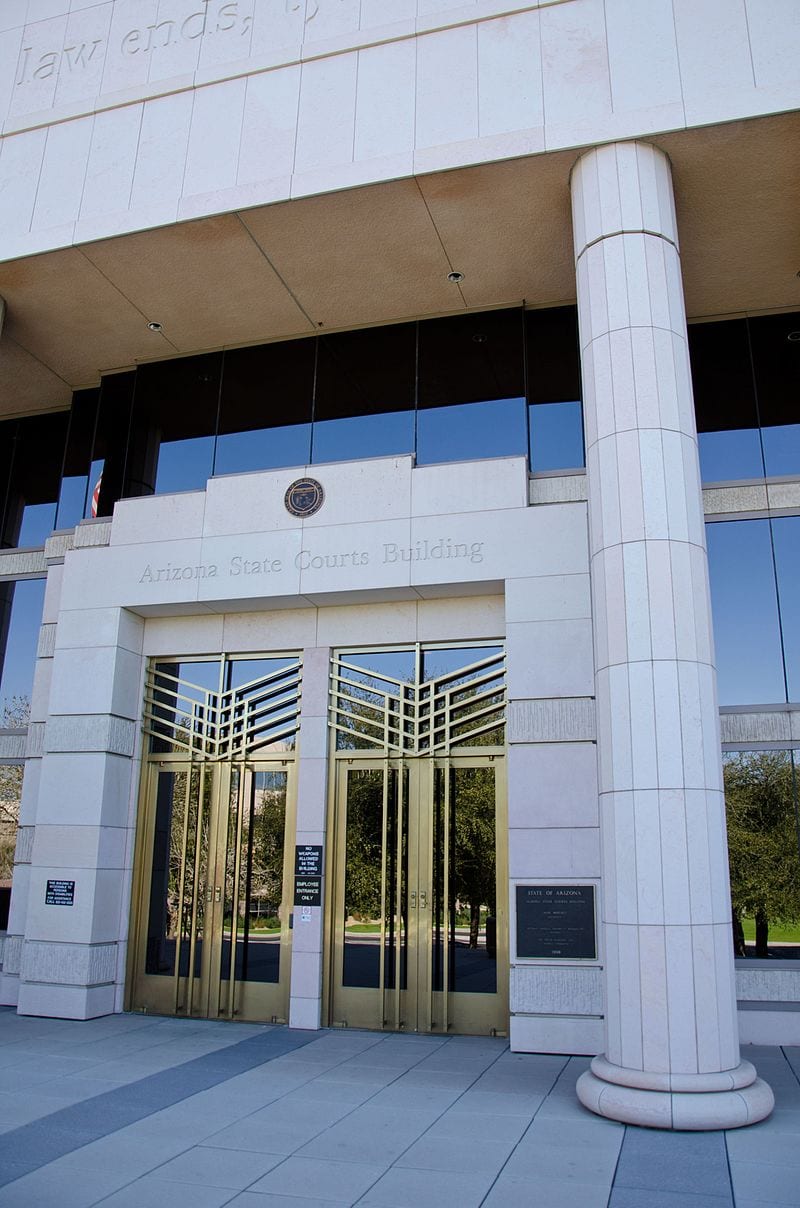Arizona’s Attorney General, Mark Brnovich, and his office are currently working hard to convince the State’s Supreme Court to “block Phoenix from enforcing its anti-discrimination ordinance against two women who refuse to craft wedding materials for same-sex nuptials.” In a legal brief submitted with the court, Brnovich claims that “Arizona and a handful of other states that have sided with him have compelling interests in protecting their citizens’ freedoms of speech and religion secured by the U.S. Constitution, as well as by their individual state constitutions.”
Arizona’s Attorney General, Mark Brnovich, and his office are currently working hard to convince the State’s Supreme Court to “block Phoenix from enforcing its anti-discrimination ordinance against two women who refuse to craft wedding materials for same-sex nuptials.” In a legal brief submitted with the court, Brnovich claims that “Arizona and a handful of other states that have sided with him have compelling interests in protecting their citizens’ freedoms of speech and religion secured by the U.S. Constitution, as well as by their individual state constitutions.”

Brnovich also argues that siding and agreeing with the city of Phoenix in the legal battle is the equivalent of “coercing artists to use their talents to create government-sponsored messages.” He further states:
“It forces petitioners to create art that expresses the message that particular unions are marriages, despite their sincerely held religious beliefs that such unions are not marriages and are antithetical to God’s design for marriage.”
In addition to Brnovich’s legal brief his office submitted to the court, the case has drawn the attention of several groups, resulting in many ‘friend of the court’ briefs being submitted by groups such as the Jewish Coalition for Religious Liberty, the Southern Baptist Convention, the Hindu American Foundation, and the Anti-Defamation League. All the groups filed their briefs on behalf of the artists.
What happened, though? For starters, the case centers around artists Joanna Duka and Breanna Koski, who own “Brush & Nib Studio where they prepare both custom and pre-printed wedding invitations, place cards, and other materials.” The two women decided to push back against the city’s anti-discrimination ordinance that is, according to them, effectively telling them “that they have to design wedding invitations for customers that celebrate same-sex marriages.” Duka and Koski argue that the ordinance violates their religious beliefs.
For those unfamiliar with the ordinance, it makes it “illegal to discriminate in providing goods or services at places of public accommodation based on race, color, religion, sex, national origin, marital status, sexual orientation, gender identity or expression, or disability.” It further forbids “advertisements or other notices which say that business from certain protection groups would be unwelcome, objectionable, unacceptable, undesirable or not solicited.”
However, the women, who believe “the only legitimate marriage is between one man and one woman,” asked the courts to “rule that they have a right to refuse to create the same kind of custom designs for same-sex couples as they routinely do for heterosexual couples” in a peremptory suit.
A trial judge pushed back against their suit. Appellate Judge Lawrence Winthrop “rejected their claim that the ordinance violates their constitutional and religious rights,” and said the ordinance “regulates conduct, not their beliefs.” In a written statement, he added:
“If appellants, as an economic entity, want to operate their for-profit business as a public accommodation, they cannot discriminate against potential patrons based on sexual orientation.”
Brnovich pushed back against Winthrop, though, and said the problem with the current case involving Duka and Koski is that it centers around “an original art creation.” He argues that the “First Amendment protects individuals from having to say something they do not believe,” and that “art is a classic example of pure speech…And pure speech cannot be made a public accommodation.” He also added that as pure speech, it cannot be “subject to anti-discrimination laws.”
In a back and forth, Winthrop said the current Phoenix ordinance does not bar Duka and Koski from “expressing their personal beliefs that their religion recognizes only the marriage of opposite-sex couples,” and added that the women are “free to refuse to create wedding-related merchandise for same-sex couples, as long as they do not provide the same service for opposite-sex couples.” He said, “What appellants cannot do is use their religion as a shield to discriminate against potential customers.”
Brnovich, on the other hand, noted that in violating the ordinance, people like Duka and Koski risk spending “six months in jail and a $2,500 fine.” He added, “It effectively forces such artists to choose between practicing their religion and earning a living in their chosen trade.”
At the moment, a hearing is set for January 22.
Sources:
Arizona AG wants court to block Phoenix anti-discrimination law against business
Christian business owners in Arizona challenge anti-discrimination law again


Join the conversation!